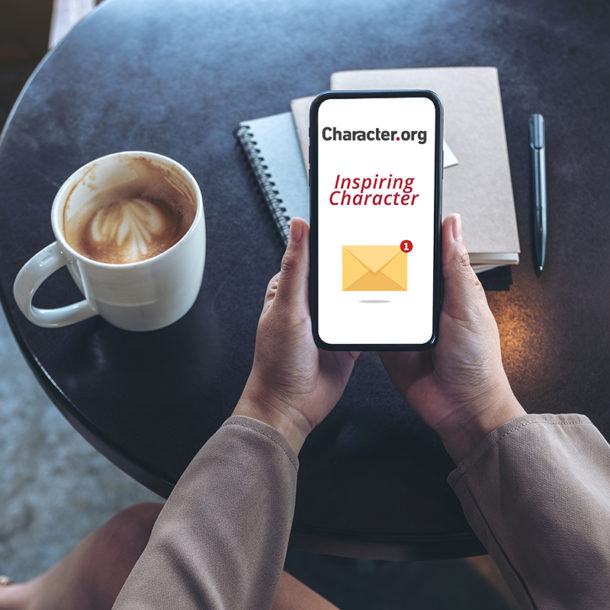By Dr. Arthur Schwartz
Congress established National Medal of Honor Day in 1991 to “foster public appreciation and recognition of Medal of Honor recipients.” Our lawmakers chose March 25 because on that date in 1863 the first Medal of Honor was awarded to six Union soldiers.
Kyle Carpenter is the youngest living recipient of the Medal of Honor. Born in 1989, he enlisted in the Marine Corps when he was 19. One year later, he was in Afghanistan manning a rooftop security post during a Taliban attack. Right next to him was another Marine.
According to Kyle’s Medal of Honor citation,
The enemy initiated a daylight attack with hand grenades, one of which landed inside their sandbagged position. Without hesitation and with complete disregard for his own safety, Lance Corporal Carpenter moved toward the grenade in an attempt to shield his fellow Marine from the deadly blast. When the grenade detonated, his body absorbed the brunt of the blast, severely wounding him, but saving the life of his fellow Marine.
I’ve had the honor of talking to six different Medal of Honor recipients, including Kyle, and when I ask them about their moment of valor, each recipient shares the same refrain: “I was trained to do what I did.” “I didn’t do anything that the person to my left or my right wouldn’t have done.”
Yet their courageous actions tell a different story. Simply put, every Medal of Honor recipient went “above and beyond” their call to duty.
Initially a military phrase, the term “above and beyond” is now widely used across all sectors of our society. We all know teachers who go “above and beyond” to support their students and school. The same goes for hospital workers. There is also emerging research that even workplace managers are keen to hire and promote employees who go that extra mile.
But the reality is that most of us don’t have an “above and beyond” mindset. Perhaps it’s because some of us learned early the truth of the expression “the nail that sticks out gets hammered down.” Others of us may be temperamentally risk averse. We prefer to play it safe to get ahead.
In short, going “above and beyond” is a muscle that needs to be exercised. Each of the Medal of Honor recipients I interviewed was trained to go “above and beyond” because the military takes intentional steps to reinforce what Aristotle told us a long time ago: “We are what we repeatedly do.”
Below are four strategies that every family, school, coach, or after-school program could do to help tweens and teens develop an “above and beyond” mindset that is strong and reliable:
- Create a shared language on “taking initiative.”
Taking initiative means recognizing — and then doing — what needs to be done before being asked. That takes confidence. Trust. Practice. The reality is, however, that most kids learn at an early age “to get along, go along.” Being proactive is hard. That’s why it’s critical for adults who work with kids to create a shared language that elevates why “taking initiative” is so important. They also need to recognize and affirm the kids who do stick their necks out to help others.
- Help young people discover their superpowers.
We are all born with certain positive traits needed to produce courage. Some people have a high level of empathy, while others are exceedingly conscientious. Tweens and teens need to discover which of their unique character strengths they can count on and leverage when it’s time to go “above and beyond.”
- Encourage “helping” commitments and habits.
Can we imagine a future where every young person has, by middle school, formed a “helping others” commitment? As James Clear, author of Atomic Habits puts it, the best way to change who we are is to change what we do, whether it’s regularly tutoring younger students, weekly visits to the elderly or infirmed, or volunteering at an animal shelter.
- Elevate the power of stories, role models, and exemplars.
It’s far easier to discern how others have gone “above and beyond” than to explain how we have done so. That’s why it’s critical for students to learn about and share with each other inspiring stories of those who confronted their fear, peer pressure, or groupthink and found the courage to do the right thing.
The National Medal of Honor Griffin Institute is developing an interactive digital curriculum to inspire young people of all ages to go “above and beyond” for others. At the heart of their mission is to inspire each student to be their best self…for others. I’ll be sure to let you know when the curriculum becomes available.
I’d love to hear from you about someone you know who consistently goes “above and beyond” for others. You can reach me at arthur@character.org.
Author’s Note: Kyle Carpenter recently recorded a short, inspiring video about what he’s learned since falling on that grenade 10 years ago. Check it out here.
Stay Connected To Character
Would you like to receive Arthur’s weekly blog post?







0 Comments